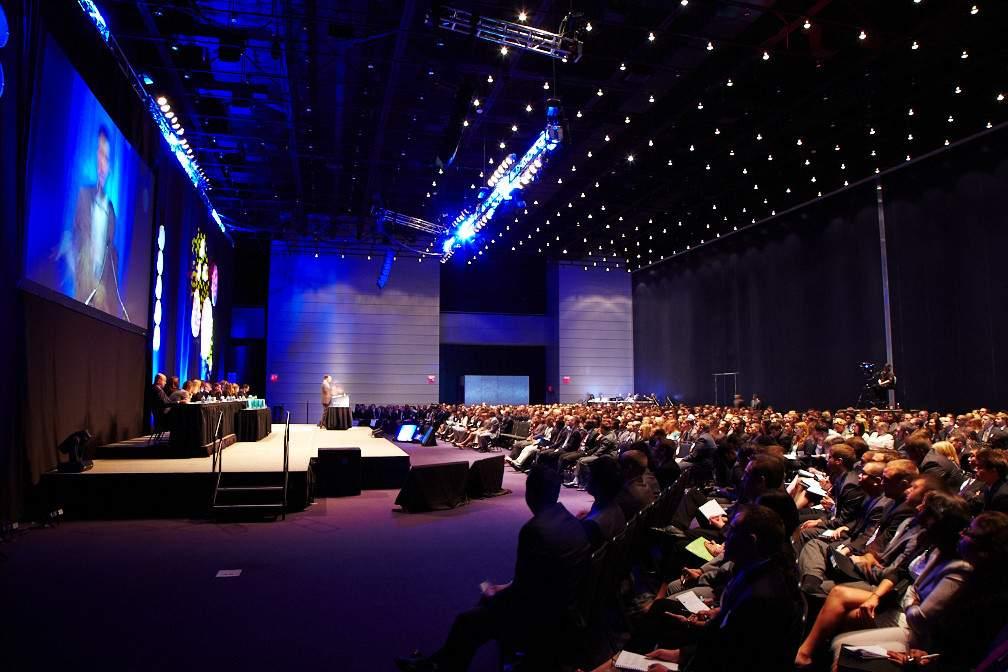The Meetings, Incentives, Conferences And Exhibitions (MICE) Industry

The meetings, incentives, conferences and exhibitions (MICE) industry in Israel has experienced tremendous growth over the past decade. With its strategic location between Europe, Asia and Africa, state-of-the-art infrastructure and unique cultural offerings, Israel has established itself as a preferred global destination for business events and incentive travel.
History and Growth of MICE Tourism
The origins of MICE tourism in Israel can be traced back to the 1990s when the country began promoting itself aggressively as a business and leisure destination. Several major convention centers were constructed in cities like Tel Aviv and Jerusalem during this period to attract international associations and corporations looking for venues. International airlines also expanded their flight networks to Israel, making it more accessible from key global markets.
These early investments and promotional efforts paid off rapidly. By the late 1990s, Israel was hosting over 100,000 MICE visitors annually who contributed significantly to the travel and tourism economy. The number of association conferences and large corporate incentives held in Israel grew steadily through the 2000s as the country worked to enhance its MICE product and service quality. Several niche verticals like medical, technology and agri-business conferences also emerged as strong segments.
Today, the Israeli MICE industry rakes in over $1 billion in revenues each year by attracting over 350,000 business event delegates. The economic impact is around $2 billion when including expenditures by accompanying persons as per estimates by the Israel Ministry of Tourism. Industry experts project visitor numbers could double to 700,000 by 2025 if current growth rates continue.
World-class Infrastructure
One of Israel's biggest advantages is its world-class infrastructure for hosting major international events. Tel Aviv and Jerusalem boast state-of-the-art convention centers that can accommodate events of all sizes. The new convention complex in Eilat near the Red Sea has added significant capacity for smaller to mid-size events as well.
Israels' airports at Tel Aviv, Eilat and Haifa welcome hundreds of international flights daily, connecting the country to major cities across Europe, North America, Africa and Asia. Inbound charter flights also operate seasonally from key markets like Russia. The country has a modern road, rail and public transport network to facilitate travel between cities and venues. 5-star hotels offering 4000+ rooms are present across popular MICE gateways like Tel Aviv, Jerusalem, Eilat and the Dead Sea region.
Technology Leadership and Innovation
Delegates are drawn by Israel's reputation as the "Start-Up Nation" with a thriving technology industry. Cutting-edge healthcare and agritech innovations top the agenda of many science and research conferences. Business leaders seek to tap into Israeli expertise in cybersecurity, artificial intelligence, renewable energy and more through networking events.
The country's penchant for innovation is evident in how events are conducted as well. Digital check-ins, mobile apps for scheduling, virtual and augmented reality enhancements are mainstream enhancements. Live polls, participant surveys and engagement features keep attendees invested throughout. Event organizers are developing new formats around accelerator programs, hackathons, demo days and idea competitions to stay ahead of the curve.
Rich Cultural Experiences
Beyond business, Israel offers a treasure trove of historical, religious and natural sights that enhance the delegate experience. Iconic destinations like the Old City of Jerusalem, Masada, the Dead Sea and the port of Caesarea feature regularly on pre- and post-event itineraries. Delegates can discover ancient tradition amid modernity on guided tours of neighborhoods in Tel Aviv, Haifa and Tiberias. Outdoor incentives incorporate activities like jeep safaris in the Negev desert, hiking in Biblical landscapes and snorkeling in the Red Sea.
Cuisine is another highlight, blending influences from around the Mediterranean with Middle Eastern flavors. Kosher dining adheres to religious traditions yet never compromises on quality or variety. Local wines from boutique Galilee and Golan Heights vineyards pair exceptionally well with contemporary Israeli fare. Evening entertainment ranges from energetic Israeli dancing to multicultural performances across various cultural heritages present in the country.
Sustainability Leadership
Sustainability is a high priority for Israeli convention bureaus and venues. Efforts include reducing single-use plastic, optimizing energy and water use through smart systems, sourcing local seasonal produce and leveraging public transport links to venues. Carbon offset programs allow organizers to neutralize emissions from air travel. Some hotels integrate renewable technologies like solar panels and have earned green certification for eco-friendly practices. Event designs focus on recycling, upcycling and eliminating waste where possible.
Looking Ahead
As global travel recovers post-pandemic, industry players are bullish about the future of MICE tourism to Israel given its strengths. New convention infrastructure projects are underway to accommodate an expected 50% increase in conferences over the next five years. Enhanced digital capabilities will support hybrid event formats. Promotional efforts emphasize positions in advanced sectors like fintech, cyber and health aligned with national economic priorities. Strategic collaboration with neighboring regions also opens possibilities. If the current momentum continues, Israel's status as a compelling destination for incentive groups, association gatherings and corporate functions is set for exponential growth in the coming decade.
Get More Insights On Israel Meetings, Incentives, Conferences And Exhibitions
- Art
- Causes
- Crafts
- Dance
- Drinks
- Film
- Fitness
- Food
- Spiele
- Gardening
- Health
- Startseite
- Literature
- Music
- Networking
- Andere
- Party
- Religion
- Shopping
- Sports
- Theater
- Wellness
- IT, Cloud, Software and Technology


